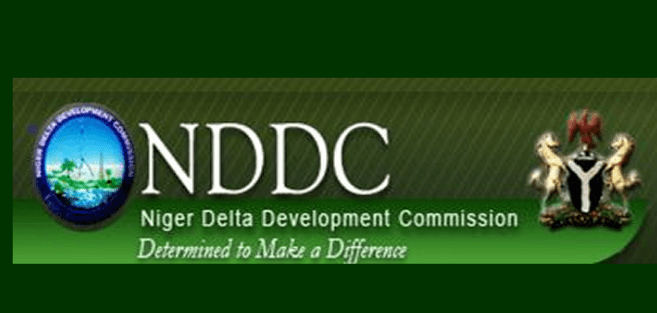Given the thrust of the foregoing submission to reconcile with the expectation of the wider Nigerian society, that the National Assembly fosters a buy-in into whatever protocol it envisages for the redemption of the NDDC, a justified and sustainable outcome from its on-going investigative hearings becomes clearly cut out.
The least outcome which the Nigerian public expect from the investigative exercise is that never again will the rot in the NDDC, manifest to the present extent.
Meanwhile, such a dispensation will not come to be only by wishful thinking, nor through the traditional salutary measures with which the National Assembly is generally seen to be handling instances of abuse of public office, and which have failed to meet the expectations of Nigerians.
There are many reasons to justify the consideration of the NDDC as a special case, particularly in the light of the prevalence of nauseating in-house rot – and at the magnitude presently dramatised in the public domain, as unacceptable. One of these is that that the NDDC is a product of an armistice deal, over a mutually debilitating conflict between the Federal Government and the region’s agitators for more control of their resources. To see such a palliative facility failing to deliver serially on its mandate and under the supposed watch of the Presidency itself, constitutes an act of betrayal of the trust vested in the former, by the region.
Secondly is that the rather suffocating control of the Presidency over its affairs since inception, had disposed the agency to be largely seen rightly or otherwise by the people of the region, as a mere conduit pipe and cash-point in the creeks, which was set up by the Federal government for serving the special purpose of feathering the nests of interests in the good books of Abuja. It is therefore not for nothing that since its inception, the agency has been allowed to run with an open-ended mandate to breach virtually all known public service rules as pertains to recruitment, financial operations, project execution and any other development expedients in the region.
Hence over the years and with the humongous flows of public largesse to it, the impact of NDDC intervention in the region remains negligible with stagnation constituting the most enduring feature of the environment. It therefore constitutes a gross misjudgment for anybody to discount that there is across the region, a deep seated ground swell of resentment against the federal government, courtesy of the inchoate status and failures of the NDDC as presently constituted. Whoever doubts this assertion should also ponder over why virtually every community in the region is placed under a detachment of the Nigerian military, who ordinarily parade a seeming mandate to protect the localities, but are largely believed to cow and intimidate same into subservience to the might of the federal government. This cannot but be the ugly face of the double tragedy of the Niger Delta communities, that not only are they milked unjustly of their natural resources, they are also held hostage in the face of such outrage. Talk of testing the will of the restive factors in the region!
The point cannot be lost that if the NDDC were operating otherwise as intended, the Niger Delta region would have been flourishing and served as the driver of the country’s economy, especially as the host of the critical oil and gas operations. Its development would have been to the betterment of every Nigerian as well as foreigners that sojourn there. In that context, the pains of the region over the failure of the NDDC are also transferred to the rest of the country, leaving all – except the beneficiaries of the establishment’s in-house rot – to carry the short end of the deal. In fact to place the matter in fuller context the country’s ultimate economic development remains tied hand and foot to the fortunes of the Niger Delta, with the NDDC serving as the catalyst for such a dispensation.
Without equivocation therefore, the foregoing scenario demands a full make-over for the NDDC, including the review of the very act setting it up. Without a review of the statutory framework for the agency, it is inconceivable that much reforms can be effected in its service delivery mandate. A key weakness that justifies the review of its establishment act is the loose corporate governance structure designed for it. In none of the provisions of the NDDC Act is there a stipulation of any criteria bordering on verifiable proof of competence to justify the recruitment of its top leadership circles with respect to the execution of its core mandate. The choice of top leadership was left to the whims and caprices of the political leadership of any zone that enjoyed the privilege of providing such persons. Hence the respective governors of the NDDC states simply brought arbitrarily, whoever suited their proclivities to town. It is that cycle of arbitrariness that still pervades the affairs of the NDDC, and even spawned the advent of the IMC, as well as the attendant hemorrhage of the agency’s patrimony.
If as reported in some media that the Acting Managing Director Daniel Pondei who fainted under cross examination collects as much as N60 million monthly as imprest, while Cairo Ojuogbo as Executive Director projects also enjoys as much as N45 million per month, the situation leaves much to be desired when compared to the extant ambience for financial operations in the country’s public service.
In the light of prevailing circumstances, the National Assembly should not be deluded into expecting any of its efforts at remedying the NDDC, to come off easy. If the hard truth must be told, there will be stiff resistance from all quarters who are presently benefitting from the in-house rot in the NDDC. From the members in its hallowed chambers to elements in its bureaucracy and to the network of NDDC-fed network of hawks within its universe, will come resistance.
The way forward is still for the National Assembly to amplify the scope of its current intervention, to ensure that its investigative hearings lead to sustainable transformation of the agency, and stave off and untoward fallout from the seething rage in the Niger Delta region over the failures of this topical interventionist agency. A new NDDC is possible and the National Assembly owes the country the duty of making this come to pass.

 Join Daily Trust WhatsApp Community For Quick Access To News and Happenings Around You.
Join Daily Trust WhatsApp Community For Quick Access To News and Happenings Around You.


